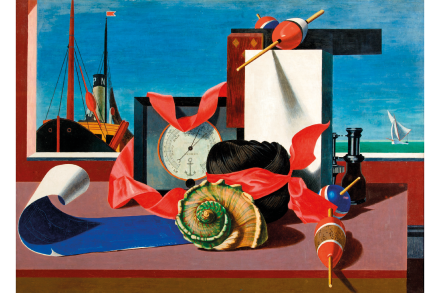Is there still life in British still life?
‘The tyrannical rule of nature morte is, at last, over,’ announced Paul Nash in the Listener in 1931. ‘Apples have had their day.’ Since Cézanne fulfilled his famous boast that he would astonish Paris with an apple, artists had been trying the same trick in London, with limited success. Astonishment, unfortunately, only works once. Nash had had it up to here with them apples: tired of post-impressionism, tired of still life. An electric toothbrush occupied the same place in Hamilton’s heart as Mont Sainte-Victoire in Cézanne’s Continental ghosts haunt the tabletops of Pallant House Gallery’s informative new survey of modern and contemporary British still life. First it was the Dutch,




















